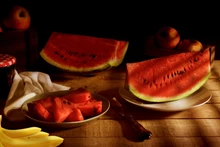
In a crucial appeal to the Union Minister of Fisheries, Animal Husbandry, and Dairying, Parshottam Rupala, Dr Ajay Deshpande, President of the Association of Vets in Poultry (VIP), representing over 1200 veterinary professionals in India, has highlighted the pressing challenges faced by the poultry sector.
The sector, a key player in the Indian economy, is grappling with soaring local maize prices, a critical component in poultry feed constituting 60% of the total feed.
Deshpande underscores the immediate threat to the poultry industry's financial health, with poultry feed accounting for 80% of production costs.
The surge in local maize prices, exacerbated by inconsistent rainfall in major maize-producing states, is driving up the cost of chicken production. Poultry farmers are selling chicken at an average of Rs 65/kg, incurring substantial losses against the production cost of Rs 85/kg.
The letter reveals that the maize production estimate for 2022-2023 is 35.91 million tonnes, with the poultry sector alone consuming around 18 million tonnes.
Moreover, India's export of approximately 3,453,680.58 MT further strains domestic maize availability. Deshpande emphasizes that the current maize prices of Rs 25/kg throughout India, up from last year's average of Rs 23/kg, are unsustainable for the poultry farming community.
Anticipating maize prices to reach Rs 28-30/kg by February 2024, the association foresees a worsening situation post that date due to uncertainties in Rabi maize production. To bridge the demand-supply gap, the industry is compelled to rely on imports, but the existing 60% import duty on non-GMO maize is discouraging.
In light of this crisis, the Vets in Poultry Association urgently requests the Government of India to consider reducing the import duty on non-GMO maize from 60% to either NIL or a maximum of 15%.
Deshpande argues that previous instances of maize imports have not adversely affected local farmers; instead, they played a crucial role in stabilizing demand and supply, benefiting both farmers and the poultry industry.
The association supports this request with a detailed calculation, demonstrating that by reducing the import duty, the price of non-GMO maize can be significantly lowered, contributing to a stabilized market. The adjustment aims to support the financial sustainability of poultry farmers and ensure affordable access to nutritious protein for the people of India.
Deshpande highlights the substantial contribution of the poultry sector to the Indian national GDP at 1.5 Lakh crores, generating direct employment for 25,000 layers and over 5 lakh broiler farmers, with an additional indirect impact on over 2 million individuals, primarily in villages.
Concluding the letter, Deshpande acknowledges the delicate balance needed to safeguard local farmers while ensuring the economic viability of industries dependent on maize imports.
He emphasizes that a strategic reduction in import duty is a necessary step to address the immediate challenges faced by the poultry sector, aligning with the broader vision of agricultural growth and the Prime Minister's goal of doubling farmers' income.











